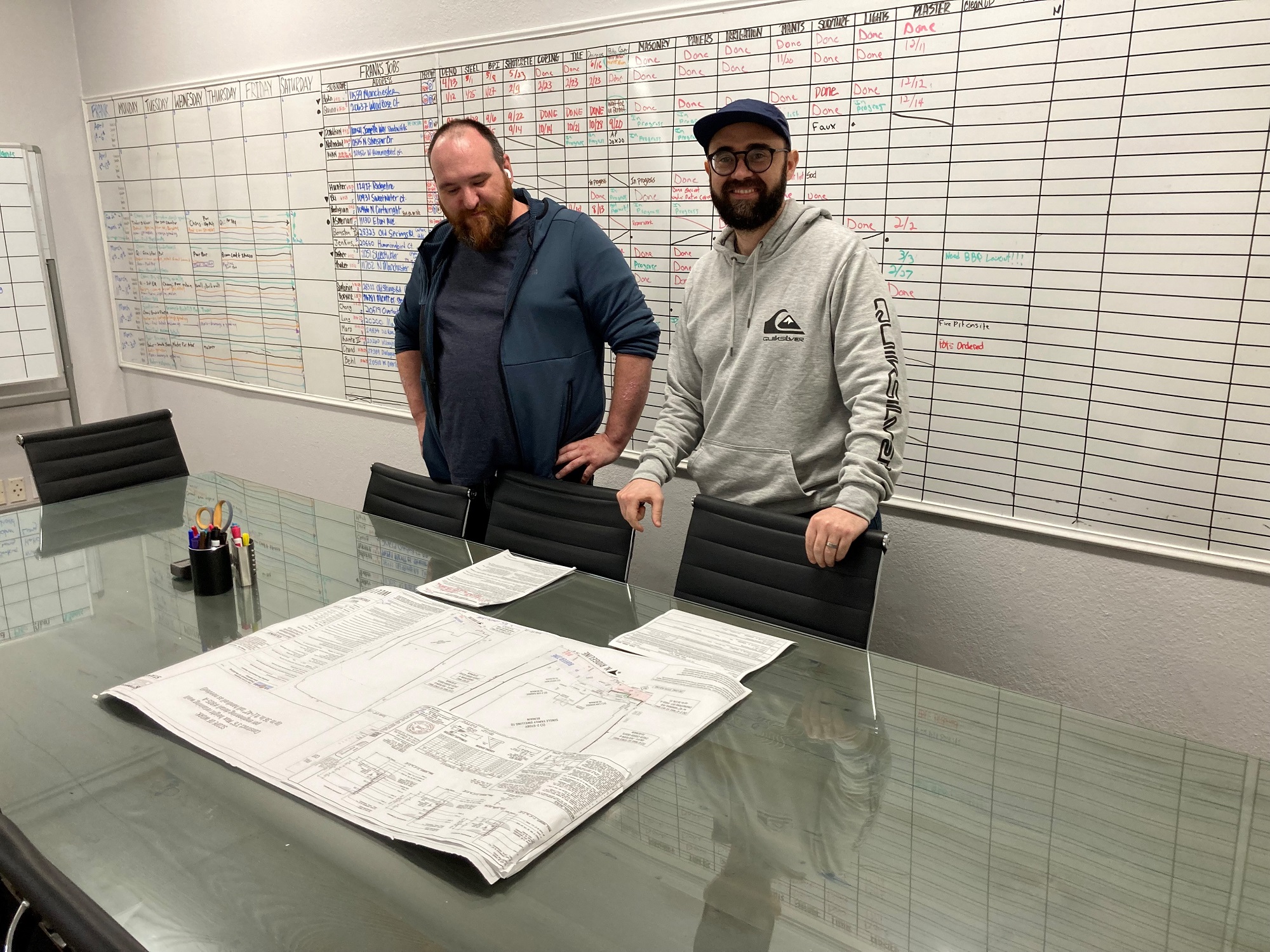Lead flow does not rank at the top of Scott Cohen’s concerns.
In the high-end market he serves, inquiries have dipped a little, but he still has enough work to keep the company busy. While he sees interest rates costing some jobs at this time, he expects things to turn around as soon as it drops a point or two.
Instead, the Green Scene President sees the permitting process as the main obstacle to moving forward.
The permit situation in the Los Angeles area he serves has been causing delays since the pandemic started. When lockdowns were imposed, everything had to be done remotely. While the pandemic has passed, the city hasn’t gone completely back to operating in person. Doing things digitally requires a delayed back-and-forth process that could be handled instantly in person. Plus, he says, “Nothing’s done at the counter anymore. Everything is taken to the back room. So that takes a lot more time.”

The Green Scene's permit runner, Justin Chavarri, and vice president of construction, Charles Miller.
What used to take a day with a walk-in appointment now can take three months. “By the time we start building,” he says, “material costs have already risen, making margins tighter.”
To streamline the process as much as he can control, Cohen has a full-time permit runner. He makes sure that person has a familiarity with pool construction that is both deep and wide. Permit offices suffer from the same staffing issues as any business and, because plan checkers oversee all different kinds of construction, they probably won’t specialize in pool building. So the permit runner must be ready to fill that gap in expertise.
“That person needs to be very knowledgeable so they can argue when necessary about what they’re asking for,” Cohen says. “If they say, ‘We need a grading plan,’ we need to be able to explain why they don’t need a grading plan. If they ask how many yards of soil we’re taking out, we need to explain why that’s not applicable.”
Additionally, he recently hired a vice president of construction, Charles Miller, who has taken charge of overseeing permits.
In his new position, Miller is trying a strategy that the company also uses with homeowners associations — namely, developing what they call “pet peeve sheets.” Miller and the team sift through past permit documentation to see what questions and corrections are made, not only from city to city, but also specific to each individual plan checker. With these lists in hand, they expect to be better prepared going into each permit process.
“Each city planning office has a different set of rules, then each plan checker has their own interpretation,” Cohen says. “We don’t know ahead of time which plan checker we’ll get, but once we get the individual plan checker, we know what the changes will be coming back.”
Finally, Cohen himself stays in touch with upper management at the permit office to let them know what is slowing the process.





